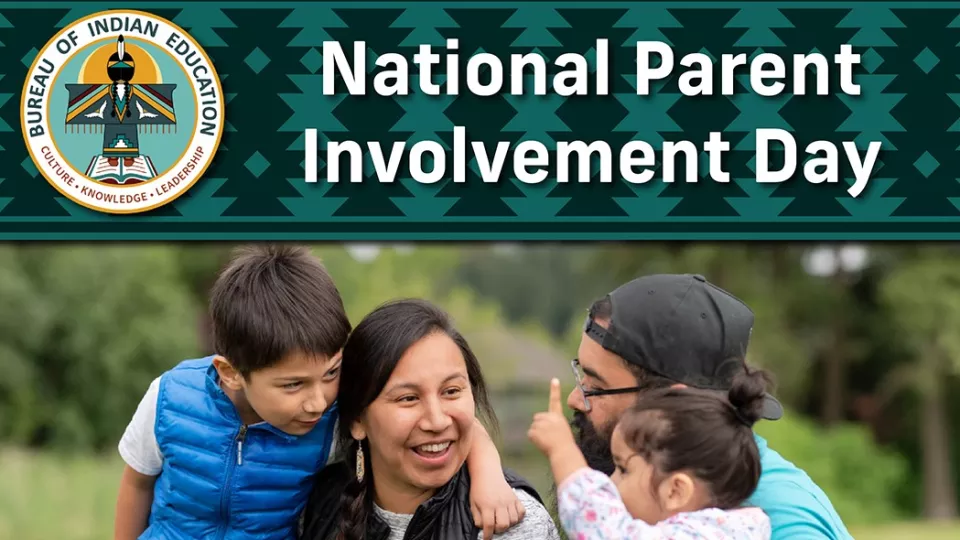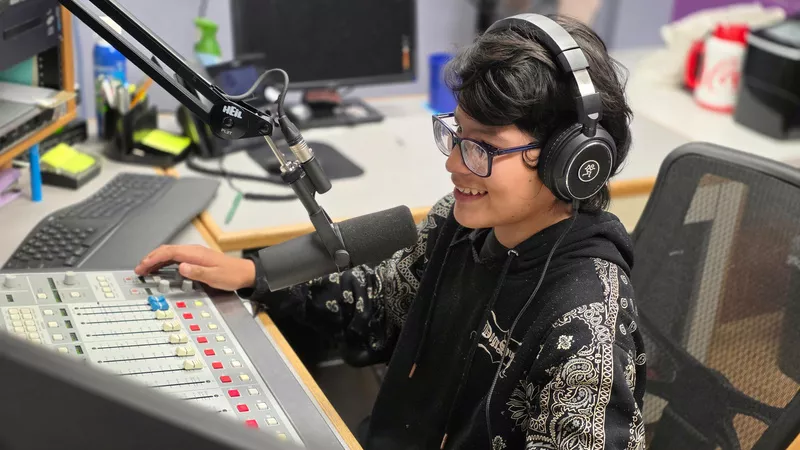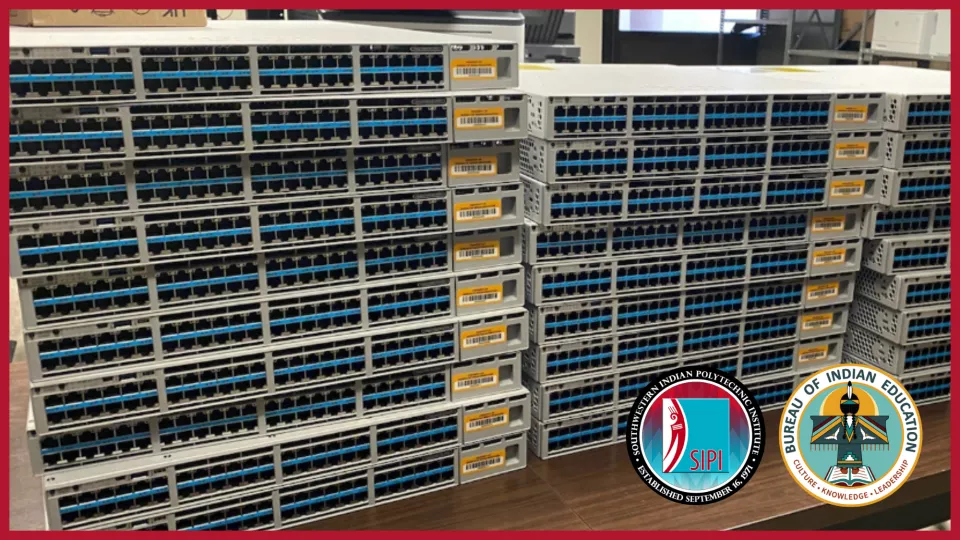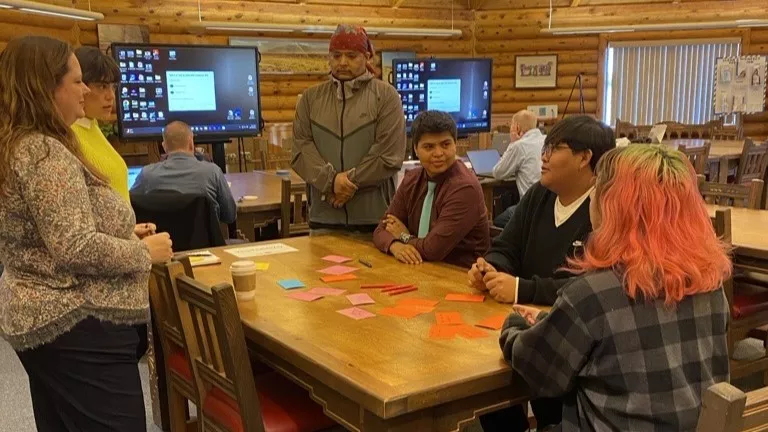
Parents and caregivers play a crucial role in students’ academic and social success, and the Bureau of Indian Education is committed to helping families support their children throughout their education. On National Parent Involvement Day, the BIE recognizes the importance of Family and Child Education programs and community activities held at schools.
Family and Child Education
The BIE’s Family and Child Education program collaborates with parents yearly to achieve a shared mission of educational success. FACE is a program for children from birth through the 3rd grade and adults seeking a general education diploma or career training and placement. FACE is designed to provide parents and caregivers with academic resources to help them support their children’s education and enhance communication between families and educators.
The FACE program at T'iis Ts'ozi Bi'Olta Community School in Crownpoint, New Mexico, began in 1993 and has served hundreds of students and families for the past three decades. Lorraine Yazzie has been with the program since the early 1990s and now serves as its preschool teacher.
"Our parents understand our mission and want to focus on their children,” she said. “Those are the successful families because they follow the model. They're involved in their child's education, like bringing them to school every day, talking to their child and reading to their child.”
The FACE program supports parents and caregivers in their role as their child’s first and most influential teachers, offering valuable academic resources to support their child’s growth and learning. The program’s goals include increasing family literacy, strengthening family-school-community connections, promoting early identification and services to children with special needs, increasing parent participation in their child's learning, supporting and celebrating the unique cultural and linguistic diversity of each Indigenous community served by the program, and promoting lifelong learning.
“In the early years of our FACE program, I remember being told, ‘In the beginning, you're going to feel like you have to carry these parents. As time passes and you give them the tools, you know when to let them fly on their own.’ And we have seen parents do that,” said Karletta Charlee, the program’s adult education teacher.
Since parent involvement affects students at every level of education, building parents’ knowledge of learning strategies and reinforcing the essential partnership between schools and families early on supports a child’s academic career and bridges classroom curriculum and at-home learning.
Family and Community Activities
According to the Centers for Disease Control and Prevention, students are healthier and more successful in school when parents and school staff work together. Students are likelier to have higher grades and test scores, better behavior, and enhanced social skills.
Tonalea Day School in Tonalea, Arizona, focuses on bringing families into the school for activities that blend academics and fun. They host parent luncheons at the beginning of the year that include a catered lunch and a presentation from staff for the parents. Family Nights at the beginning of each month focus on various themes, including STEM (science, technology, engineering, and math), celebrating the holidays, or health and wellness.
“It helps with the families and even with the kids because the kids are always wondering, ‘What are we doing this family night?’” said Tonalea Day School counselor Leronda Bedonie. “We try to make something that's a fun activity along with the more serious presentations we need to provide for the parents.”
The school also hosts community events like horseback trail riding, tours of the reservation’s radio station, and Drums of Summer, which invites drummers and dancers from around the area to a powwow. Ultimately, it is about making connections and having fun.
“As a school counselor, I try to build that relationship with every family I meet,” Bedonie said. “That's my main purpose. That's why I'm involved in all the family activities.”
Celebrate Parent Involvement Day at home by reading with children, helping with homework, and discussing school events – or at school by attending functions and participating in school organizations.
Learn more about the BIE’s FACE programs.
Contact
Office of Communications
Bureau of Indian Education Central Office
U.S. Department of the Interior
1849 C Street NW, MIB-3610
Washington, DC 20240
Telephone: 202-941-0789
Email: biecommunications@bie.edu





